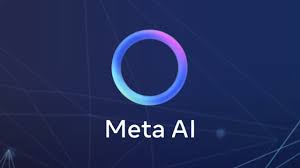Meta AI: Revolutionizing Artificial Intelligence for the Future
Introduction to Meta AI
Meta AI stands at the forefront of artificial intelligence (AI) innovation, driving transformative changes across multiple industries. As a pioneering entity in the AI domain, Meta AI integrates advanced machine learning algorithms, natural language processing (NLP), and deep learning to craft solutions that redefine technological possibilities. In this comprehensive article, we delve into the pivotal aspects of Meta AI, exploring its technological underpinnings, applications, and the future it envisions.
Understanding Meta AI
Meta AI is a research division of Meta Platforms, Inc., formerly known as Facebook. Its primary focus is on developing cutting-edge AI technologies that enhance user experiences and drive business innovations. The division operates with a mission to build AI systems that are not only powerful but also ethical and sustainable.
Key Technologies Behind Meta AI
- Deep Learning: At the core of Meta AI’s advancements is deep learning, a subset of machine learning that utilizes neural networks with multiple layers to analyze various forms of data. This technology powers features such as image recognition, speech processing, and predictive analytics.
- Natural Language Processing (NLP): Meta AI leverages NLP to enhance text understanding and language generation. This enables sophisticated applications like chatbots, virtual assistants, and automated content generation.
- Machine Learning Algorithms: Meta AI employs a range of machine learning algorithms to develop systems that can learn from data and make predictions. This includes supervised learning, unsupervised learning, and reinforcement learning.
Applications of Meta AI
Transforming Communication
Meta has revolutionized communication through its NLP technologies. Applications like Facebook Messenger’s AI-powered chatbots and automated translation services illustrate how Meta enhances global interactions by breaking down language barriers and providing real-time assistance.
Advancements in Image and Video Recognition
With deep learning models, Meta has made significant strides in image and video recognition. This technology supports content moderation, personalized content delivery, and enhanced visual search capabilities.
Personalization and User Experience
Meta enhances user experience by personalizing content based on user behavior and preferences. Through recommendation algorithms, users receive tailored content that aligns with their interests, leading to increased engagement and satisfaction.
Ethical AI Development
Meta is committed to ethical AI development. This involves ensuring that AI systems are transparent, fair, and accountable. By addressing issues such as bias in AI and data privacy, Meta aims to build trust and reliability in its technologies.
Future Directions for Meta AI
AI for Social Good
Meta is increasingly focused on using AI for social good. This includes projects aimed at improving healthcare, addressing climate change, and supporting educational initiatives. By leveraging AI for these causes, Meta seeks to make a positive impact on society.
Advancements in AI Research
Ongoing research at Meta aims to push the boundaries of what AI can achieve. This includes exploring general AI, which seeks to develop systems with human-like cognitive abilities, and AI safety, which focuses on creating robust and secure AI systems.
Integration with Augmented Reality (AR)
As AR technology evolves, Meta is exploring its integration with AI to create immersive and interactive experiences. This combination promises advancements in fields such as virtual reality (VR), gaming, and education.
Conclusion
Meta represents a beacon of innovation in the artificial intelligence landscape. Through its advanced technologies, ethical practices, and commitment to social good, Meta is shaping the future of AI and its applications. As it continues to explore new frontiers, the impact of Meta AI on various industries and society at large will be profound.


